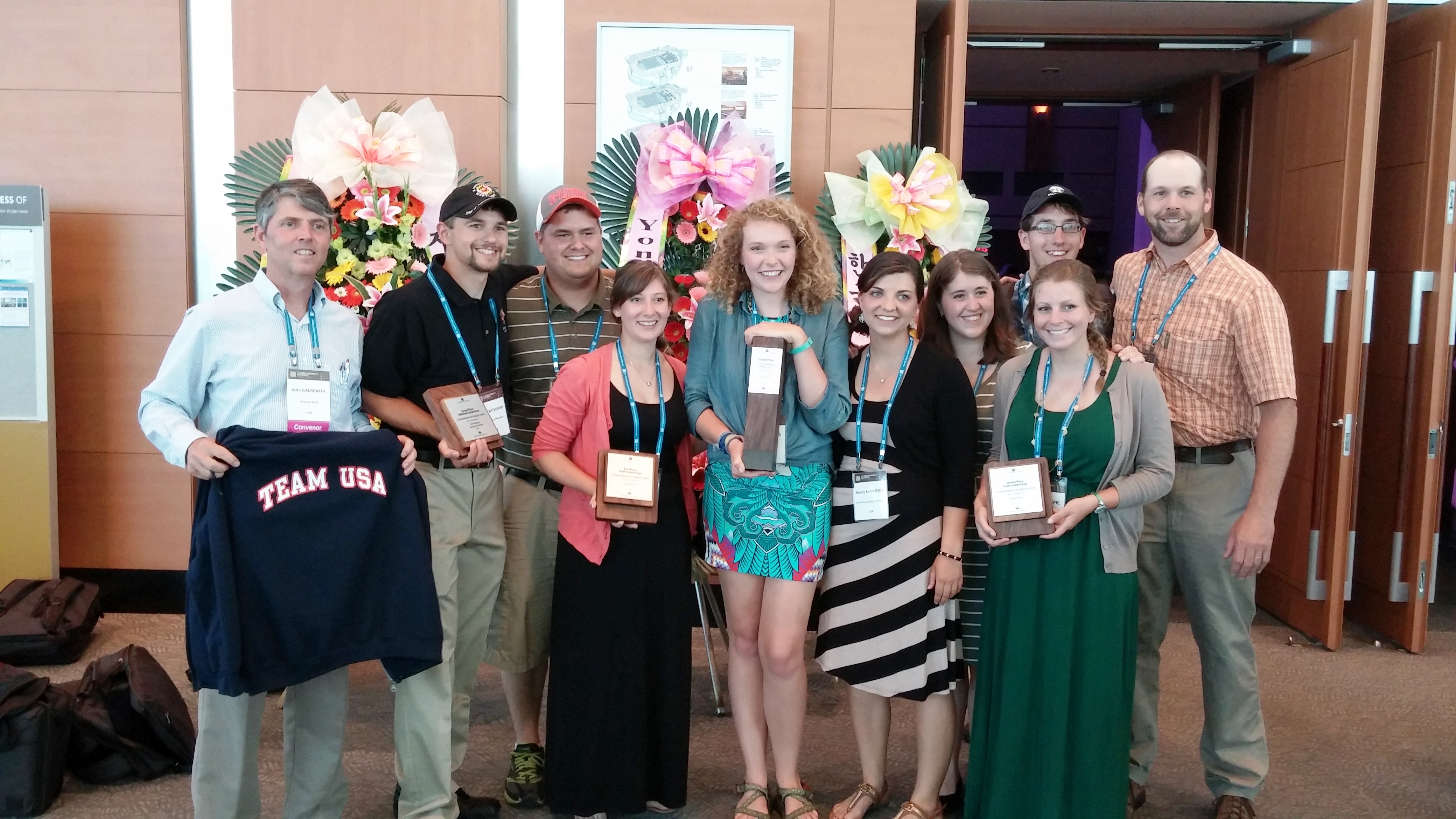Virginia Tech captures win at first international soil judging conference in South Korea

This month, when thoughts turn to intense international competition, most people think of the green pitch of soccer’s World Cup.
But for John Galbraith, associate professor of crop and soil environmental sciences, it was the layers of earth themselves that were the main event on the global stage. This June, Galbraith and two Virginia Tech students dug into a first-ever international soil judging contest.
The World Cup of soil judging happened in Jeju, South Korea, at the 20th International Union of Soil Sciences World Congress of Soil Science’s International Soil Judging Contest. The two Virginia Tech students who were part of the team representing the U.S. were selected from the university's soil team that won the overall competition at the Soil Science Society of America National Intercollegiate Soil Judging Contest in April.
Virginia Tech was the only school that had more than one student qualify to attend the international competition as part of two four-member teams who represented the United States. Galbraith qualified as one of two coaches for the United States as a result of the national win.
Galbraith and his students were invited to meet with U.S. Secretary of Agriculture Thomas Vilsack in Washington, D.C. in August on behalf of the National Resources Conservation Service.
For the competition, the students had to measure soil color and shape; separate soil profiles into horizons and name them; estimate the texture, rock fragments, structure, and record color patterns that indicate water table height; record landscape properties; and classify each soil. Their results were compared to the soil descriptions of a team of experts.
“It was a once-in-a-lifetime experience for them. The students were excellent ambassadors for the United States and for competitive soil judging,” said Galbraith who coached the second place team. “We are very proud of how the U.S. students represented themselves and their country, both in performance, character, and friendliness with other teams."
Another singular experience for the students was judging the soil itself. The soil in Jeju is mostly volcanic ash.
“Students were seeing soil that formed from explosions of ash and rock,” said Galbraith. “There is no volcanic ash where any of the students from the U.S. team came from. The only place in the United States that has volcanic ash soils is the Cascade Range that runs from California through the Pacific Northwest and into British Columbia.”
Explosions were in fact a hallmark of the event.
“There were immense eruptions from the thousands of scientists in the audience," as results of the competition were announced during the opening ceremonies of the soil congress, said Galbraith. “People were cheering for their teams and countries, and for the winners in general."
Emily Salkind of Springfield, Virginia, a December graduate who majored in environmental science at Virginia Tech, finished fourth in Korea and was on the winning team. Julia Gillespie from Ashburn, Virginia, also a December graduate who majored in environmental science, placed sixth in Korea and was on the second place team.
For soil and country, team members overcame many personal and professional obstacles, but perhaps the most valuable experience was learning good sportsmanship.
"They were humble and gracious winners who had the pleasure of being congratulated by scientists from six continents,” said Galbraith.





